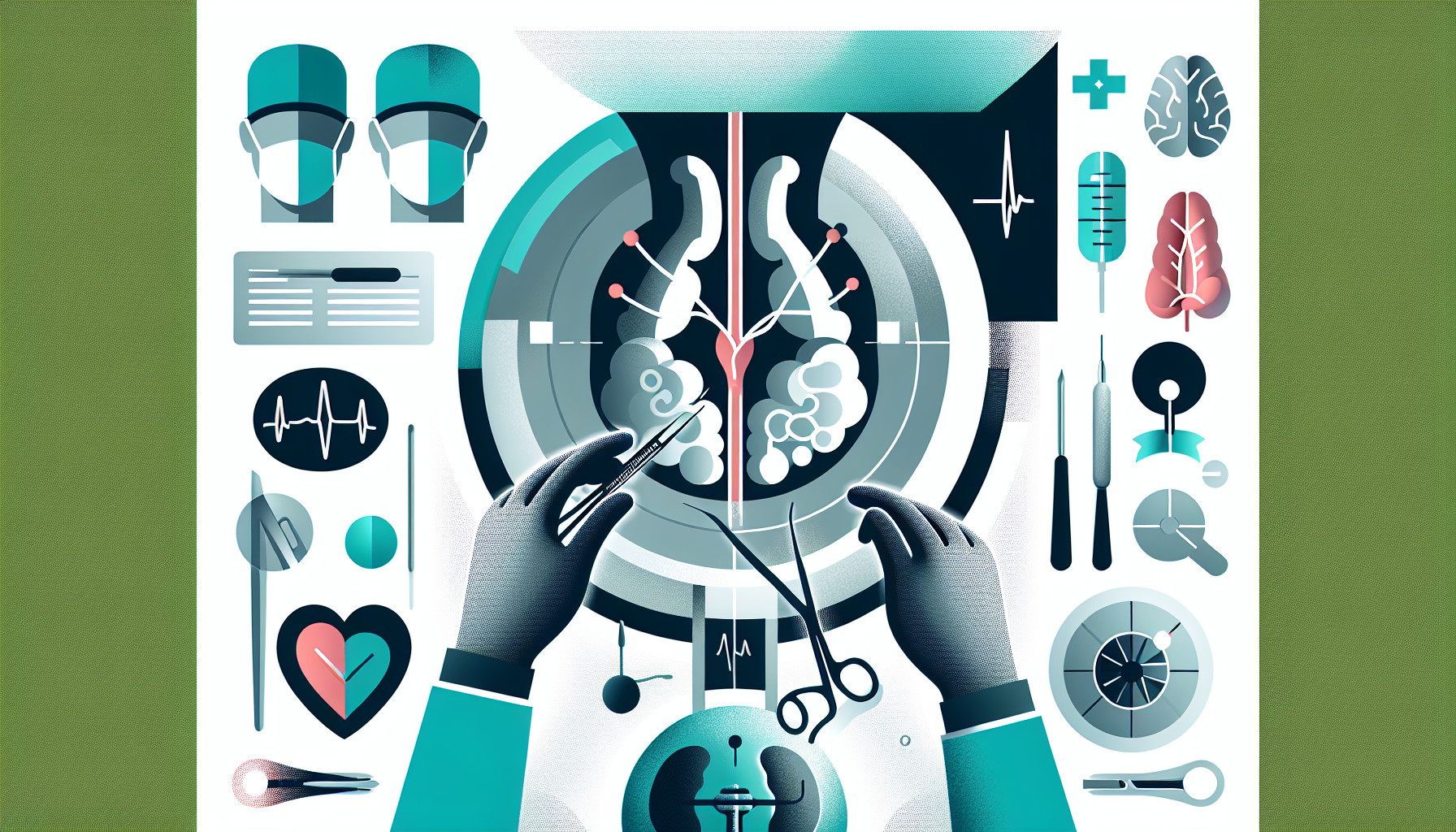Our Summary
This study compared the results of first-time inflatable penile prosthesis (IPP) surgeries and revision surgeries (second-time or more), which are implants to treat erectile dysfunction. The researchers found that first-time surgeries were quicker and had fewer complications than revision surgeries. However, based on a questionnaire about quality of life and sexual satisfaction, both groups reported high satisfaction and effectiveness of the implant. Even though the results are positive, the researchers emphasize that patients undergoing revision surgeries should be informed about the higher risk of complications during and after the surgery.
FAQs
- What is the primary difference between first-time and revision inflatable penile prosthesis surgeries?
- Are the satisfaction and effectiveness rates high for both first-time and revision surgeries?
- What should patients be made aware of before undergoing a revision surgery for inflatable penile prosthesis?
Doctor’s Tip
One helpful tip a doctor might tell a patient about penile implant surgery is to carefully follow all pre-operative and post-operative instructions provided by the medical team. This may include guidelines for managing pain, caring for the incision site, and avoiding certain activities during the recovery period. By following these instructions closely, patients can help minimize the risk of complications and promote successful healing following the surgery.
Suitable For
Patients who may be recommended for penile implant surgery include those with severe erectile dysfunction that has not responded to other treatments such as medication or vacuum devices, patients with Peyronie’s disease causing severe curvature of the penis, patients with spinal cord injuries or neurological disorders affecting erectile function, and patients who have had prostate cancer surgery resulting in erectile dysfunction. Additionally, patients who have experienced complications with a previous penile implant and require revision surgery may also be recommended for the procedure.
Timeline
Before penile implant surgery:
- Patient consults with a urologist to discuss treatment options for erectile dysfunction
- Patient undergoes a physical examination and medical history review to determine if they are a suitable candidate for a penile implant
- Patient may undergo additional testing, such as blood tests or imaging studies, to evaluate their condition
- Patient and healthcare team discuss the risks and benefits of the surgery, as well as the expected outcomes
- Patient may need to make lifestyle changes or try other treatments before proceeding with surgery
After penile implant surgery:
- Patient undergoes the surgical procedure to implant the device, which typically takes a few hours
- Patient stays in the hospital for monitoring and pain management for a day or two
- Patient is instructed on how to care for the surgical site and use the implant, including how to inflate and deflate it for erections
- Patient may experience discomfort, swelling, or bruising in the genital area for a few weeks after surgery
- Patient will have follow-up appointments with their healthcare team to monitor their recovery and address any complications or concerns
- Patient can expect to resume sexual activity after a few weeks or as advised by their healthcare provider
- Patient may experience improved erectile function and sexual satisfaction as a result of the implant
What to Ask Your Doctor
- What are the potential risks and complications associated with penile implant surgery?
- How long is the recovery period and what can I expect during the recovery process?
- Will I still be able to achieve natural erections after receiving a penile implant?
- How long will the implant last and will I need any follow-up surgeries in the future?
- What are the alternative treatment options for erectile dysfunction that I should consider before opting for a penile implant?
- How experienced are you in performing penile implant surgeries and what is your success rate?
- Can you provide me with information on the different types of penile implants available and help me choose the best option for my specific needs?
- What should I do to prepare for the surgery and are there any specific precautions I need to take afterwards?
- Will I need to make any lifestyle changes or adjustments after receiving a penile implant?
- Can you provide me with references or testimonials from previous patients who have undergone penile implant surgery with you?
Reference
Authors: Di Pierro GB, Lemma A, Di Lascio G, El Motassime A, Grande P, Di Giulio I, Salciccia S, Maggi M, Antonini G, De Berardinis E, Cristini C, Sciarra A. Journal: Andrologia. 2021 Dec;53(11):e14240. doi: 10.1111/and.14240. Epub 2021 Sep 9. PMID: 34498769
